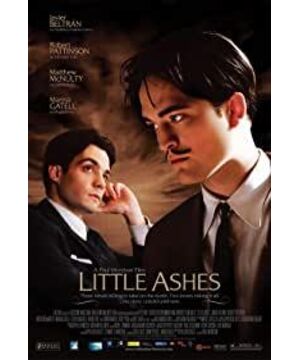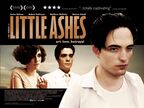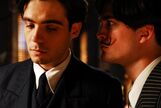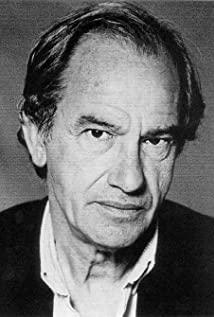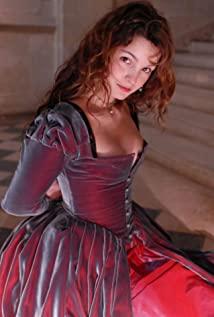When I first watched it, I felt that this movie was not my thing. There were too many political things in the subject matter, and the picture was very gloomy and gloomy. After ten minutes of patience, I realized that a good movie is like good wine. The more aging, the more fragrant, and full of stamina, endless aftertaste.
The protagonist is a painter and a poet. I basically don't have a say in art. I didn't know these two great men at all before watching the film, so I can only guess from the plot and the emotions of the characters.
Dali's character has both exuding and depressing aspects. His talents made him arrogant and arrogant, including the eight-character Hu that he left afterwards, showing the perverse and boastful side of his character. At the same time, when facing his feelings, his depression was clearly manifested in two tear scenes. One was watching his lover and another woman ML at Federico's house, and finally slammed out the door; One was Dali, who was painting at the end of the film, learned from the radio that Federico had been shot, and the pain was about to end. Just then his wife called him out again, and he had to desperately suppress his tears and emotions. I like Robert's handling of these two scenes very much. He tried very carefully and performed well.
In contrast, Federico's character is calm and introverted, brave and firm. His pursuit of freedom, his love for the motherland, his contempt for the powerful, and his undaunted attitude towards his own sexuality have become the bright line throughout the film. But his various beliefs were broken one by one by his lover in the second half of the film: the government fell apart, he wanted to be the petrel against the storm, but Dali chose to be the canary in the luxurious villa; he didn’t. To cover up his dissatisfaction with the new government, Dalí instead clung to fascism and helped him to abuse him. He did not marry in his life, but Dalí married his sweet wife the following year after arriving in Paris.
Therefore, if Dalí and Federico came together because they were like-minded at first, they finally separated because of their beliefs and pursuits. At this point, I really admire the artists of the past who can make such sacrifices for their ideals and beliefs. At the end of the film, when Federico was shot, I couldn't help but shed a few tears.
This film is very low-key, there is no large-scale publicity, and the topic is rather sensational. But in the process of watching, there are indeed many places that remind me of Brokeback Mountain. They are riding bicycles by the beach... They are kissing in the dark sea water... They are painting and singing poems one by one in the cabin... Although the actors are not as eye-catching as Jake of Brokeback Mountain, the soundtrack is also a lot of extra points. .
Music: The original soundtrack of the film is very good. The scenes of the two protagonists at the beach and the soundtrack of the final shooting, personally think it is no less than Brokeback Mountain.
Picture: Bicycles, cabins, rock reefs by the sea, black and white pictures interspersed from time to time, and the black canvas when news of death comes at the end of the film. The pictures are all impressive.
I just wanted to write a few thoughts, but I didn't expect it to be so long, I really feel that the ratio of five stars is a bit low. Every time I write this kind of stuff, I don’t know how to end it.
10.05 Editor: I have collected the soundtrack for so many hard work, and I made a package po and shared it with TX. See http://forranita.blogbus.com/logs/47689786.html for details
View more about Little Ashes reviews


